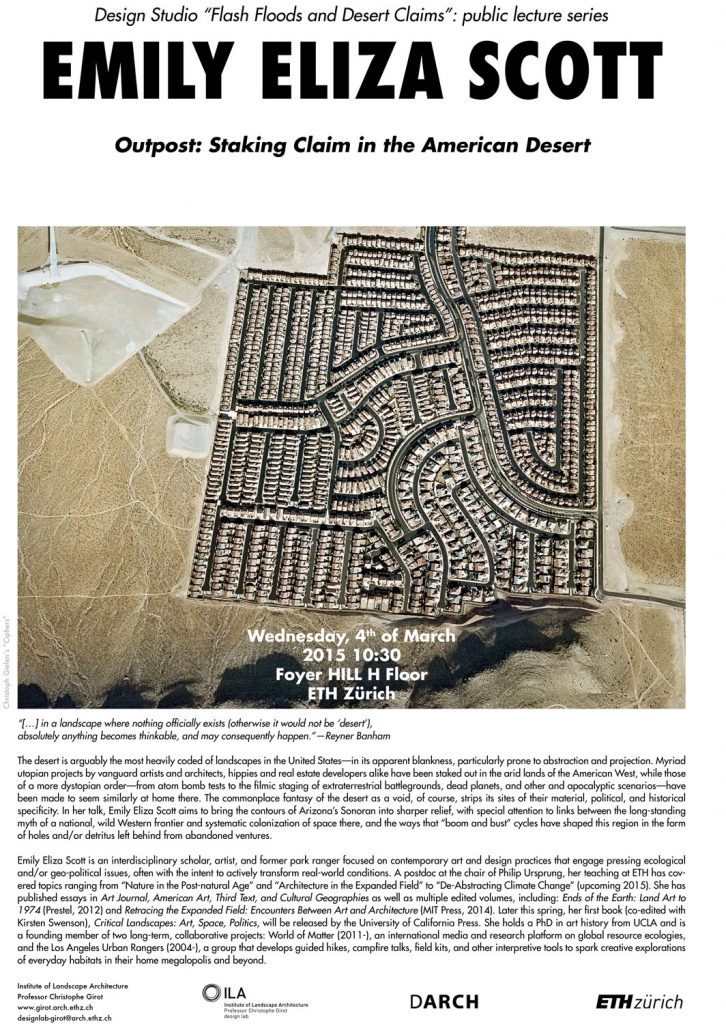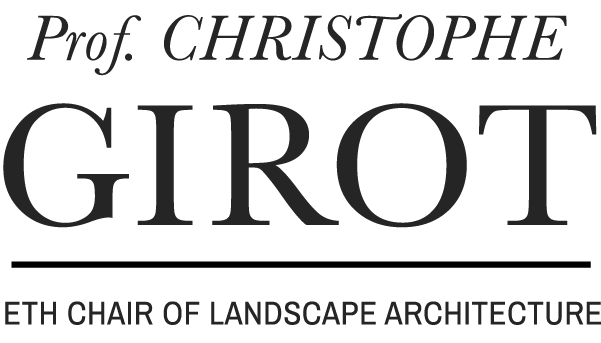
“[…] in a landscape where nothing officially exists (otherwise it would not be ‘desert’),
absolutely anything becomes thinkable, and may consequently happen.”—Reyner Banham
The desert is arguably the most heavily coded of landscapes in the United States—in its apparent blankness, particularly prone to abstraction and projection. Myriad utopian projects by vanguard artists and architects, hippies and real estate developers alike have been staked out in the arid lands of the American West, while those of a more dystopian order—from atom bomb tests to the filmic staging of extraterrestrial battlegrounds, dead planets, and other and apocalyptic scenarios—have been made to seem similarly at home there. The commonplace fantasy of the desert as a void, of course, strips its sites of their material, political, and historical specificity. In her talk, Emily Eliza Scott aims to bring the contours of Arizona’s Sonoran into sharper relief, with special attention to links between the long-standing myth of a national, wild Western frontier and systematic colonization of space there, and the ways that “boom and bust” cycles have shaped this region in the form of holes and/or detritus left behind from abandoned ventures.
Emily Eliza Scott is an interdisciplinary scholar, artist, and former park ranger focused on contemporary art and design practices that engage pressing ecological and/or geo-political issues, often with the intent to actively transform real-world conditions. A postdoc at the chair of Philip Ursprung, her teaching at ETH has covered topics ranging from “Nature in the Post-natural Age” and “Architecture in the Expanded Field” to “De-Abstracting Climate Change” (upcoming 2015). She has published essays in Art Journal, American Art, Third Text, and Cultural Geographies as well as multiple edited volumes, including: Ends of the Earth: Land Art to 1974 (Prestel, 2012) and Retracing the Expanded Field: Encounters Between Art and Architecture (MIT Press, 2014). Later this spring, her first book (co-edited with Kirsten Swenson), Critical Landscapes: Art, Space, Politics, will be released by the University of California Press. She holds a PhD in art history from UCLA and is a founding member of two long-term, collaborative projects: World of Matter (2011-), an international media and research platform on global resource ecologies, and the Los Angeles Urban Rangers (2004-), a group that develops guided hikes, campfire talks, field kits, and other interpretive tools to spark creative explorations of everyday habitats in their home megalopolis and beyond.

